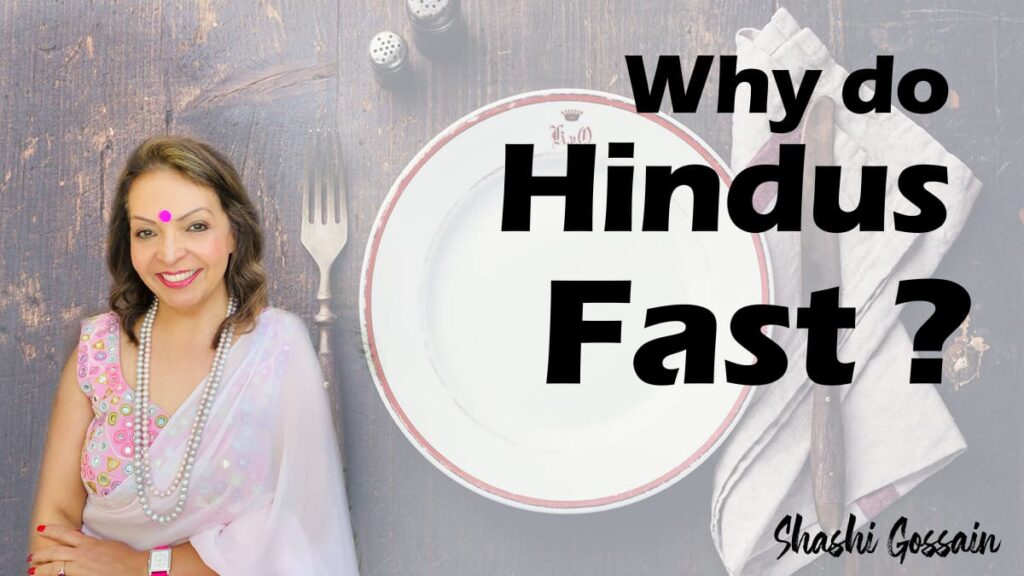It is a myth that devotees keep fast to please their adorable God. In the Hindu religion, fasting is not an obligation, but a moral and spiritual act where the aim is to purify the body and mind and acquire divine grace. Fasting in Hinduism indicates the denial of the physical needs of the body for the sake of spiritual gains.
Meaning of the word “Upavaasa” (Fast)
Fasting in Sanskrit is called upavaasa. ‘Upa’ means “near” + ‘vaasa’ means “to stay”. Upavaasa therefore means staying near (the Lord), meaning the attainment of close mental proximity with the Lord.
According to the scriptures, fasting helps us tune with the Absolute by establishing a harmonious relationship between the body and the soul.
This is thought to be imperative for the well-being of a human being as it nourishes both his/her physical and spiritual demands.
Hindus believe it is not easy to unceasingly pursue the path of spirituality in one’s daily life.
With our busy lifestyles, it’s not easy to concentrate on spiritual attainment.
Fasting is a way to get your mind focused to attain self-awareness. However, fasting is not only a part of worship but a great instrument for self-discipline too. It is a training of the mind and the body to endure and harden up against all hardships, to persevere under difficulties and not give up.
Is fasting good for health?
Fasting for short time can be beneficial for health. Nowadays fasting is beco5 widely accepted as a legitimate mean of managing weight and preventing disease. Because a Water-fast restricts calories, one can lose a lot of weight quickly.
Fasting Benefits-
- Controls Blood Sugar Reducing Insulin resistance.
- Promotes Better Health by Fighting Inflammation.
- Enhance Heart Health by improving cholesterol, BP.
- Boost functioning of brain.
- Helps weight Loss
- Improves Hunger
- Improves Immune System
- Etc.
Different Kinds of Fasting
- Hindus fast on certain days of the month, such as Purnima (full moon) ;Certain days of the week are also marked for fasting, depending on individual choices and on one’s favourite deitye.g.Some fast on Tuesdays, the auspicious day for Hanumanji. On Fridays devotees of the goddess Santoshi Mata.
- Fasting at festivals is common. Hindus all over India observe fast on festivals like Navratri, Shivratri & KarwaChouth. Navaratri is a festival when people fast for nine days. Fasting can take up many forms, from complete fasting without food & water for example in KarwaChoth to giving up certain foods e.g. cereal & only consuming fruit. This is called phalahar.
Ayurvedic Viewpoint
The underlying principle behind fasting is to be found in Ayurveda. This ancient Indian medical system sees the basic cause of many diseases as the accumulation of toxic materials in the digestive system. Regular cleansing of toxic materials keeps one healthy. By fasting, the digestive organs get rest and all body mechanisms are cleansed and corrected. A complete fast is good for heath, and the occasional intake of warm lemon juice during the period of fasting prevents flatulence.
Fellow-Feeling
Finally, the pangs of hunger that one experience during fasting make one think and extend one’s sympathy towards the destitute who often go without food. Fasting provides an opportunity for the privileged to give food-grains to the less privileged and alleviate their distress. Even in the west, intermittent fasting has become a common practice for weight control & cleanses the digestive system of toxins. This phenomenon was written in our Vedas over 5,000 years ago.



